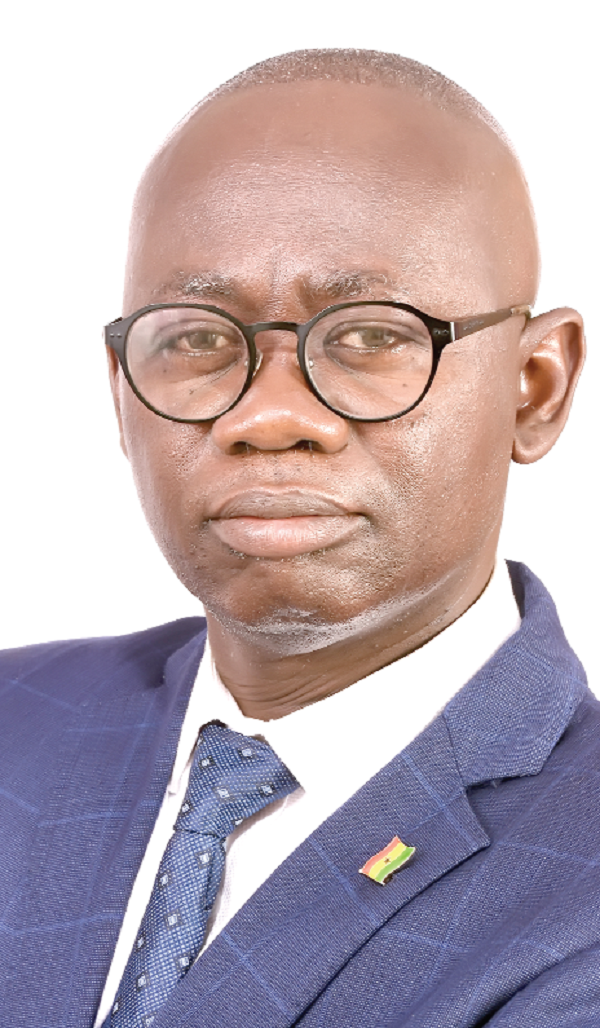
No change in 2022 academic calendar — GES
The Ghana Education Service (GES) says nothing has changed in the new academic calendar as pertaining to the previous calendars.
It said the only change was that instead of the trimester system of previous years, the current system was a semester.
“Basic schools have always been in session for 40 weeks in any academic year,” the Director-General of the GES, Professor Kwasi Opoku-Amankwa, explained.
He explained further that in the 2021 calendar, which was a trimester, there were 42 weeks, with an additional week to enable Class Four pupils to write the National Standardised Test (NST), making 43 weeks.
In an interview, he said the 2022 academic calendar, which has just been released and which was planned with the semester system, was not different.
“It is also 40 weeks,” he indicated.
He was reacting to some concerns raised by and protests from some teacher unions over the 2022 academic calendar.
Significant difference
Prof. Opoku-Amankwa said the significant difference the 2022 academic calendar brought was that the 40 weeks had been divided into 20 weeks for each semester, “and each semester further broken up into two sessions of 10 weeks, with a significant break of nine to 10 days between the 10-week sessions”.
He added that each half of a semester of 10 weeks was essentially two months and 10 days, adding that the figure translated to four months, 20 days, with a maximum 10 days break between sessions in a semester of 20 weeks, “and not six weeks, as being propagated”.
“In the trimester, learners and teachers were in school for 13 to 15 weeks (three to four months), with no breaks,” he further explained.
Contact hours
Speaking on the contact hours, Prof, Opoku-Amankwa said school start times might differ for each district, based on circumstances peculiar to the local community, stressing that if schools began at 7.30 a.m., they closed at 2.30 p.m., and if schools began at 8 a.m., they closed at 3 p.m., with one hour for breaks in a day.
“Teaching hours for basic schools have always been six hours per day, which translates to 30 hours per week. This means basic schools have 1,200 hours in an academic year in a school. Examinations and assessments take a week each term,” he explained.
He said in the trimester, learners used a week in each term for examinations and assessments, implying that learners missed 90 hours of contact, while in the semester, leaners used a week in each semester for the same purpose, “meaning teaching time is reduced by 60 hours of contact”.
He added that in a trimester, effective teaching hours were 1,046, while in the semester effective contact hours were 1,076, “meaning the semester offers a better option in terms of contact and teaching time”.
Professional development
Giving a background, the GES D-G said in the 2019/2020 academic year, the government introduced the standard-based curriculum for basic schools as part of the implementation of the curriculum, and to ensure that teachers were constantly improving their pedagogical approaches, as well as their mastery of content, the GES introduced the professional learning communities (PLC) hour.
“This PLC hour is scheduled for every Wednesday afternoon, when schools closed an hour earlier to allow teachers time to be in their learning communities with colleague teachers.
“The one hour a week for the PLC meetings translates to 40 hours of school time per year teacher professional development.
“Additionally, four days in a year (a day in every quarter) are set aside as Continuous Professional Development Day (CPPD), when learners do not attend school to allow teachers time to further develop themselves. This also translates to 24 hours of school time per year to teacher professional development,” Prof Opoku-Amankwa said.
He said in effect, a total of 64 hours of school time per year was set aside in the academic calendar for the teacher professional development, which were the PLC and the CPDDs.
